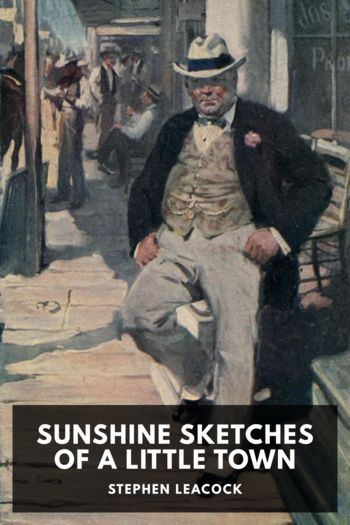Low Country, J. Jones [top 10 best books of all time .TXT] 📗

- Author: J. Jones
Book online «Low Country, J. Jones [top 10 best books of all time .TXT] 📗». Author J. Jones
It is a fact that in the late 1600s and into the next century, Blackbeard wore out the Queen Anne’s Revenge ransacking the Carolina coast and then pulling into the inlets around Horry County to hide out. I remember Little River as not much more than a swing bridge, some aboveground pools, boat docks, and roadside fireworks stands, but the town’s history hides as well as any treasure still buried. It is one of the oldest settlements in South Carolina. Right below the North Carolina border, it was, in Blackbeard’s day, the only stop between Cape Fear and Georgetown, and the lone entrance to the undesirable and difficult-to-navigate Long Bay, which was basically the whole stretch of Horry County then. Edward Teach was not the only pirate who favored the hazards of the Low Country for hiding out. Blackbeard’s friend Charles Vane so vexed the merchants of Charleston by stealing their cargo ships coming into port, including ships carrying enslaved Africans, that they engaged privately the pirate-hunting services of a William Rhett, a rice planter and naval commander whose house still stands peachy pink on Hasell Street in Charleston, smack between the City Market built in 1790 and a Harris Teeter grocery mart. Black Bart, who captured as many as four hundred ships and is considered the most successful pirate by the standard of vessels seized, is said to have worn a pluming red feather in his hat during raids. Black Bart is not to be confused with Black Sam Bellamy. Bellamy called himself the Robin Hood of the Sea and is accounted by many as the richest pirate ever to sail, said to have fallen in love with the Witch of Wellfleet and been claimed nonetheless by a hurricane.
Then there is Stede Bonnet, the genteel English aristocrat who supposedly became a pirate to escape his nag of a wife. He was known as the Gentleman Pirate, but never sounded very gentlemanly to me. All in all, Mrs. Bonnet seemed better off without him. Bonnet tried to befriend Teach, having some things in common, but Teach caught on to Bonnet’s bungling, took him prisoner, and stole his ship and crew. Blackbeard decided that Bonnet was more trouble than he was worth and let him go, while he holed up in Little River. Bonnet was not a very good pirate and was soon caught by the rice planter Rhett, though he managed to escape his jailers by dressing as a high-society lady and walking straight out of the Charleston house where he was held, the story goes. So little have South Carolinians thought of the law, there was no jail across the state well into the 1770s, a full century and a half after the founding of the Charles Towne colony. Aristocratic prisoners were treated as guests in the house of the local lawmen. South Carolinians have long delighted in the words of the statesman James Petigru, from just before the Civil War. “South Carolina is too small for a nation and too large for an insane asylum.” Petigru was ridiculed as the only man in the state who decried secession and supported the Union. I wonder if some residents would be so quick to quote Petigru if they knew he had been a Unionist.
Between hideouts in Little River, Blackbeard absconded on some adventure with more rum than his trusty galleon could keep afloat. The crew diverted the Revenge to a little island off the coast of Murrells Inlet, where they proceeded to bury the extra casks of rum and gold, feast on whatever seventeenth-century pirates feasted on, probably not what the tourists are fed at Pirate’s Voyage Dinner Show on Restaurant Row, where the Dixie Stampede used to be, and celebrate their bountiful, boozy good fortune. Come sunrise, in a hurry to catch the tide or to get their hangovers out of the sun, the band of pirates forgot to do a head count and set sail one pirate short. By the time they realized Jack was missing, Blackbeard was halfway to Aruba and unwilling to turn the ship around. They came back six months or six years later to find all their rum dug up and Jack’s bare, sun-bleached bones under a palmetto tree, surrounded by jewels and empty casks. You can see Drunken Jack’s island from the bar named for him. It’s called Goat Island these days, as locals used to cart over a family of goats in the summertime to eat the marijuana plants that grow so happily in our climate. In the interest of history, I must disclose that there is another story. That the island is named for a drunk who belonged to a gentlemen’s club of secret repute that met on the island as one of several roaming locations. They’d drink champagne, catch fish for the enslaved to clean and cook and serve to them. I have always preferred one story over the other.
A fishing boat ride inland from Goat Island, at Drunken Jack’s, Dad was a bartender with a guitar and a few ideas about getting famous, and Mom was filling orders for hush puppies and piña coladas. Dad already had a reputation in the county as a guy who went through girlfriends like packs of cigarettes. The establishments stretching the length of King’s Highway from Little River to Georgetown County were owned or managed by the Joneses at the time, and Dad had just moved out of Uncle Jack’s house, where he’d lived since high school, and into a beachy done-up condo with his two older brothers, Mike and Leslie. “I just couldn’t get along with my old man,” Dad will say when he’s in a soft mood, talking a maze around the brutality his father let flood the house.
That Ralph Cooper Jones, Granddaddy as we call him,





Comments (0)